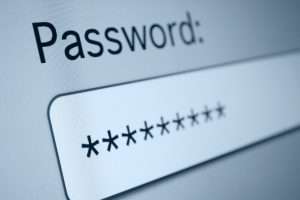 Laziness is a universal syndrome – even the most active person, at some time, succumbs to it. Strangely, it hits us in the most unlikely manner and in the most unlikely aspect of our life. The other unique aspect of this syndrome is we often allow it to creep up on us and then justify its impact. Technology is meant to make life easier for us, while protecting us and our data and ensuring privacy of personal information. From our simple hand-held phones to the most complex computers, there is a need to manage privacy and not allow unauthorized access, usage or even worse, abuse.
Laziness is a universal syndrome – even the most active person, at some time, succumbs to it. Strangely, it hits us in the most unlikely manner and in the most unlikely aspect of our life. The other unique aspect of this syndrome is we often allow it to creep up on us and then justify its impact. Technology is meant to make life easier for us, while protecting us and our data and ensuring privacy of personal information. From our simple hand-held phones to the most complex computers, there is a need to manage privacy and not allow unauthorized access, usage or even worse, abuse.
Unfortunately, the progress of technology goes hand in hand with the progress of ways to break into systems, hardware and software. And one impactful way all this affects us is by identity thefts. Identity thefts, simply defined, is when someone else illegally gains access to your information and uses it for wrong reasons. One of the biggest reasons for identity thefts is the easy access to your passwords. Interestingly, you could be the biggest accomplice to the crime.
Just think about this – you tend to forget your password and so, your easy solution is to write it on a “post it” and stick it above your desk. Or, you would create a file with all your passwords and keep it on your desktop, without a password protecting the file. It gets even worse when you write your password on a piece of paper and lose the paper! And then comes the justification – “There are so many passwords I need to create – how do you expect me to remember them all?”
Another universal reason for password thefts is the sheer predictability of the choice of passwords. Research has shown that creativity hits a low when it comes to choosing passwords and 83% of people use name of spouse, child, sibling, parent or pet, and dates of birth as the password of preference. How easy is it to figure that out, especially when the “thief” is someone who knows you? If I were to jargon this syndrome, I would call it the “Lazy Password Syndrome” or LPS.
Your cyber security depends on your choice of passwords – here are a few dos and don’ts:
– Understand the importance and seriousness of having “good passwords.”
– Do not oversimplify or over complicate the multiple passwords – both will work against you!
– Be disciplined – do not leave these passwords within easy access.
– Change them whenever you feel that the password has been compromised, or you had to share it with someone.
– If you need to keep a document listing your passwords, make sure you “secure” the file with a super safe password.
– If you want, build a pattern into your choice of all your passwords – just don’t make the pattern predictable.
Technology and multiplicity of devices, accounts and applications will push the boundaries of your laziness. Don’t succumb to it for the price you pay will be much more than you think. Fight LPS and don’t fall prey to it.
ABOUT THE AUTHOR
Satish Mehta is the Founder and Director of www.credexpert.in – a credit and debt counselling company that provides end to end customized counselling to individuals by handholding them through their credit life cycle.







Or why not just use Lastpass or any other freely available password management tool?
Ideally password managers should be used to manage your passwords. You remember one password and manager takes of all your passwords. There are good password managers available freely like lastpass.
Hi Shashank and Manoj, although there are many password management tools available, it is very important that you keep a complex master password for them. In case this master password is compromised, it will give access to all your accounts by default.
Hi Shashank and Manoj, although there are many password management tools available, it is very important that you keep a complex master password for them. In case this master password is compromised, it will give access to all your accounts by default.
Or why not just use Lastpass or any other freely available password management tool?
Ideally password managers should be used to manage your passwords. You remember one password and manager takes of all your passwords. There are good password managers available freely like lastpass.